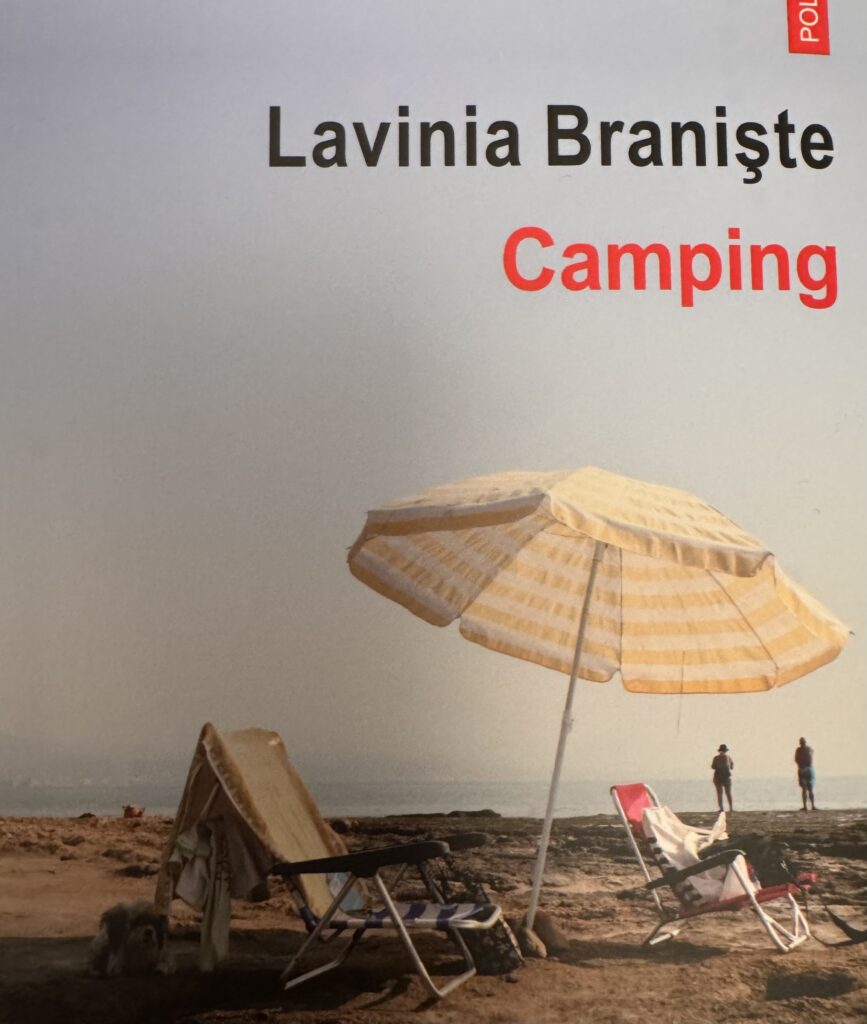A Quiet Story of Endurance
Lavinia Braniște’s Camping is a quietly devastating novel, one that does not clamor for attention but instead sits with you, observes, and ultimately leaves you with a full heart and a sharp sense of loss. As someone who belongs to the Romanian diaspora in America, my experience of emigration is shaped by a different geography and trajectory. Yet Camping offered me a window into a form of migration I had long heard about but never fully understood: the story of Romanians, especially women, who left for Western Europe to work, often in caregiving or service roles, building lives in liminal spaces that are both homes and not-homes.
The novel follows Sofia, a woman in her fifties who has spent two decades working at a Spanish campsite. She lives in a caravan, keeps to herself, and has long settled into a rhythm of quiet endurance. She left Romania with the hope of a better life for her son and herself. What she found instead is something more ambiguous: a suspended life marked by physical toil, emotional isolation, and a sense that time has moved on both around her and without her.
The Subtle Power of Braniște’s Prose
Braniște writes this world with incredible subtlety. There is no melodrama in Sofia’s story, no grand arc of triumph or redemption. The power of Camping lies precisely in its restraint. Sofia’s pain, particularly the estrangement from her now-grown son, who was raised by her father back in Romania, is rendered with exquisite emotional realism. The love is there, but so is the distance. A distance measured not just in kilometers, but in years of missed birthdays, lost conversations, and the quiet erosion of intimacy.
Braniște does not ask us to pity Sofia. She asks us to see her. To listen. And through that act of witnessing, she dignifies the quiet sacrifice embedded in Sofia’s life, a sacrifice echoed in the lives of thousands of women who left Romania seeking stability, opportunity, or simply the means to survive.
Diaspora, Gender, and Invisibility
In reading Camping, I could not help but recall the research I conducted on Romanian diaspora identity and nationalism, particularly the gendered dimensions of migration. In my 2022 paper, I examined how Romanian migrant women often find themselves both central and invisible, essential to the economic survival of their families and often entire communities, yet erased from the dominant national narratives that celebrate return, success, and visibility.
Sofia is emblematic of this tension. She is indispensable, but only in private. She is absent from the national imagination unless her remittances or returns can be counted. She exists in what Braniște so movingly captures as an “in-between”, between nations, generations, and identities. Her life, defined by care work and service, is lived in the shadows of others’ comfort.
What Happens to Home?
What Camping also reveals is how this form of migration reconfigures notions of home. For Sofia, returning to Romania is no simple homecoming. Her former life there has moved on. The town, the family, even the self she left behind, they have all evolved in her absence. And so, staying in Spain, as empty and lonely as it may seem, is not necessarily worse than returning to a place where she no longer quite fits. This is a familiar dilemma in diaspora studies: the idea that home becomes an idea more than a location, a repository of longing rather than a viable destination.
This reimagining of home struck a personal chord. As a researcher and member of the diaspora who has recently returned to Romania on a Fulbright grant, I find myself reflecting on how migration transforms not only one’s present, but one’s sense of origin and belonging. “Home” becomes layered, unstable, and deeply personal. Sofia’s ambivalence resonated with me, not because I shared her circumstances, but because I now better understand the emotional terrain she inhabits.
Listening to the Invisible Lives
I found myself particularly moved by Braniște’s refusal to romanticize this kind of migrant experience. Instead, she honors it. Through Sofia, she allows us to witness the quiet heroism of women who left not because they wanted to, but because they had to, who worked in anonymity so their children might have choices they themselves were denied. There is dignity in that sacrifice, but also pain, and Camping makes space for both.
Reading this novel as someone who has researched migration and identity, I am reminded of how important it is to tell these stories, not just in academic papers, but in fiction, which can reach into places that data and theory cannot. Sofia’s life is not reducible to a statistic or a case study. It is a human life, full of contradictions and quiet courage.
Returning with New Eyes
Now that I have returned to Romania after years abroad, this novel has taken on an added weight. I see its landscapes, silences, and emotional ruptures reflected in the people I meet, in the stories I gather, and in the absences that still linger across borders and time. Camping helped me understand the Romanian diaspora in Europe and the emotional architecture of departure, distance, and return. Sofia’s life, rooted in service, marked by silence, feels far from my own in form, yet deeply connected in meaning. Her endurance is not only moving; it is instructive. And through Braniște’s eyes, I see it more clearly than ever before.
Reference
Braniște, Lavinia. “Camping”. Bucharest: Polirom, 2025.
Mosila, Andreea. “Analysis on Nationalism and Diaspora.” SSGS 7112 – Nationalism and Identity, July 30, 2022.

